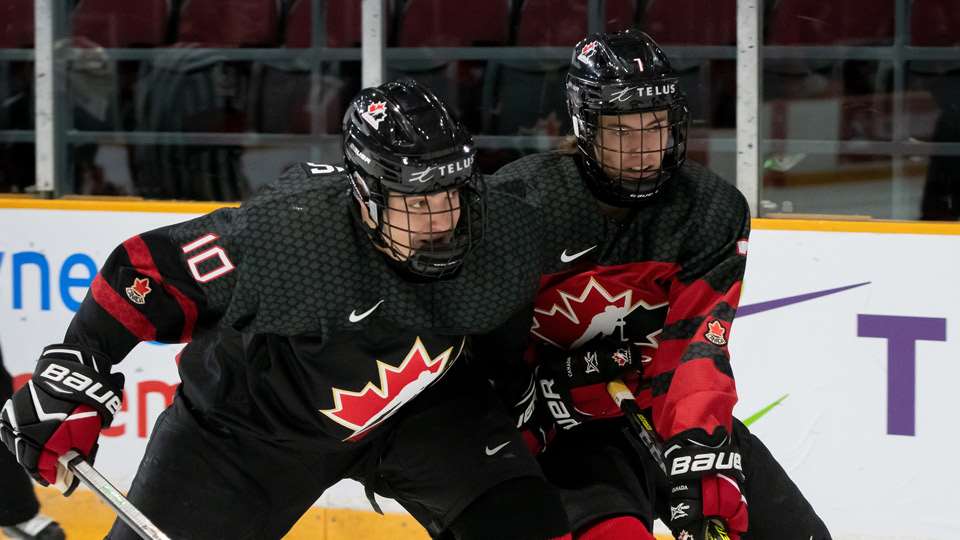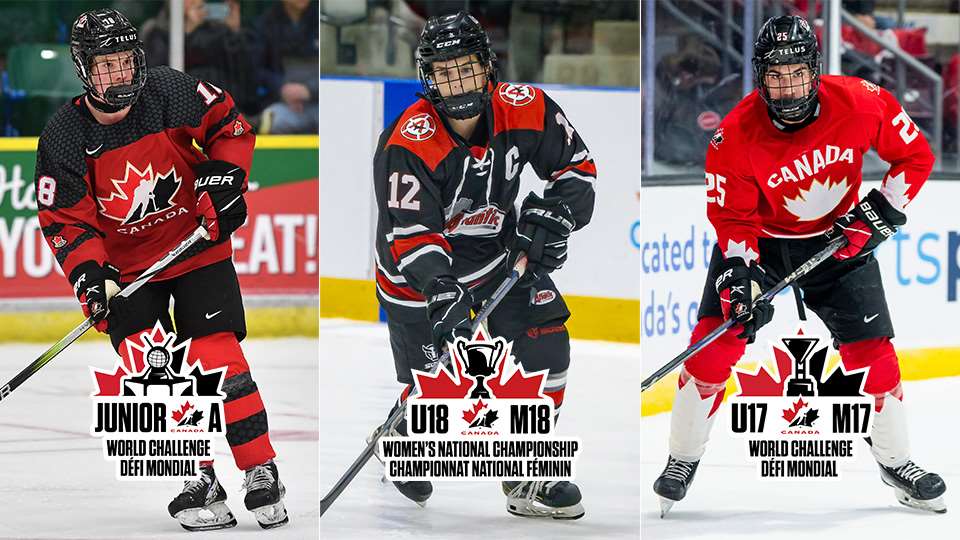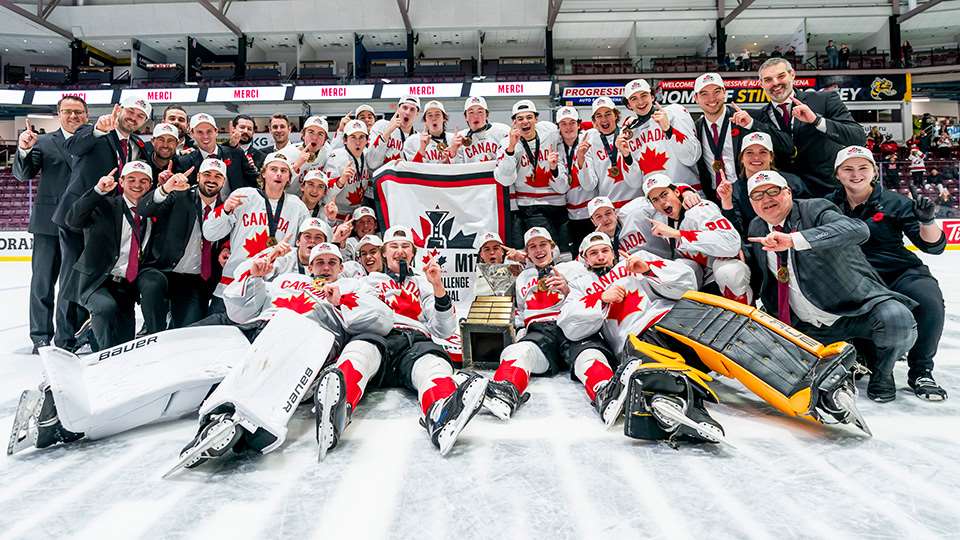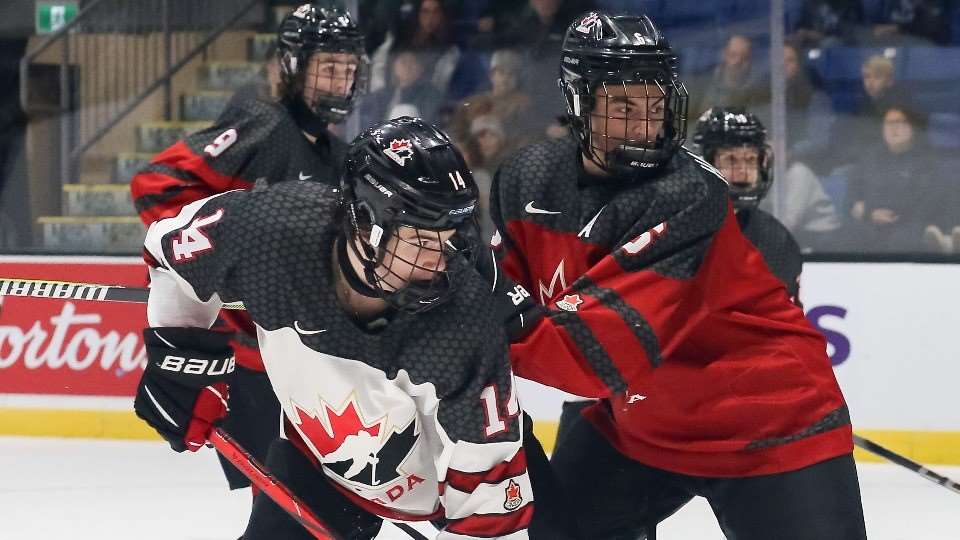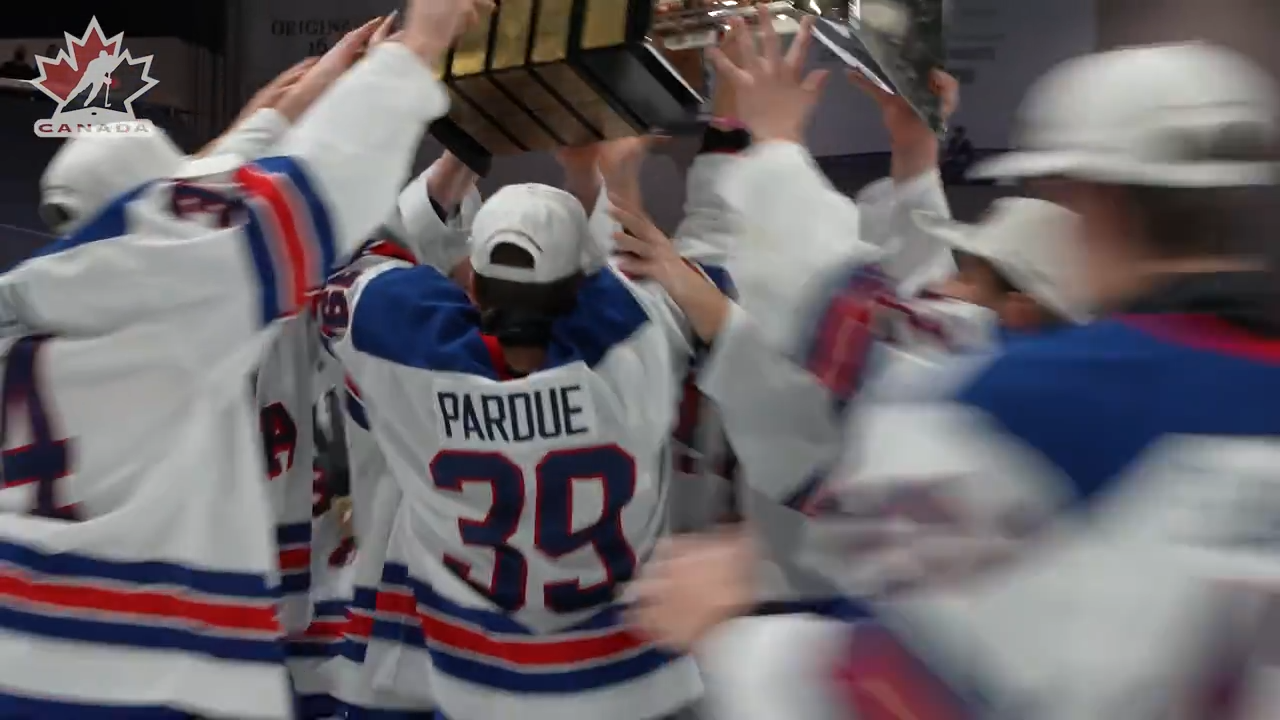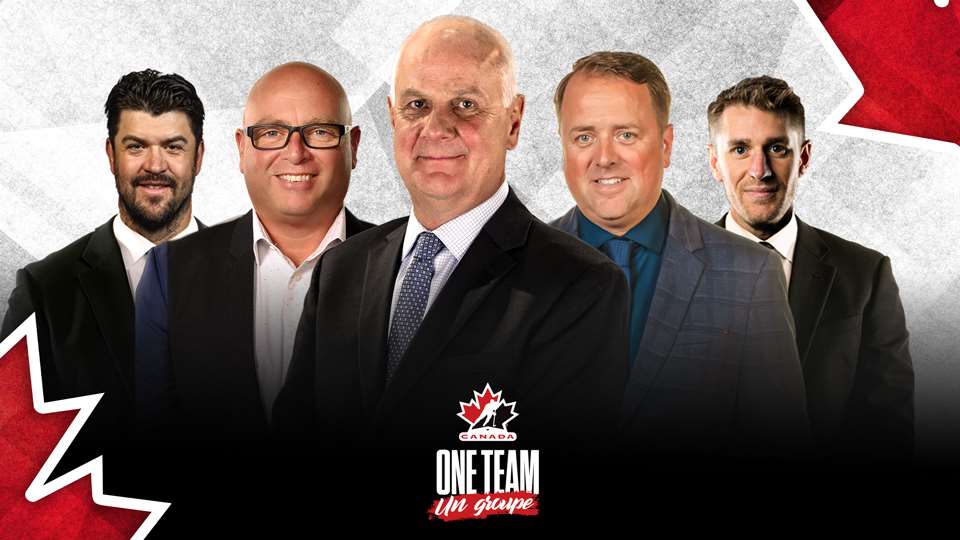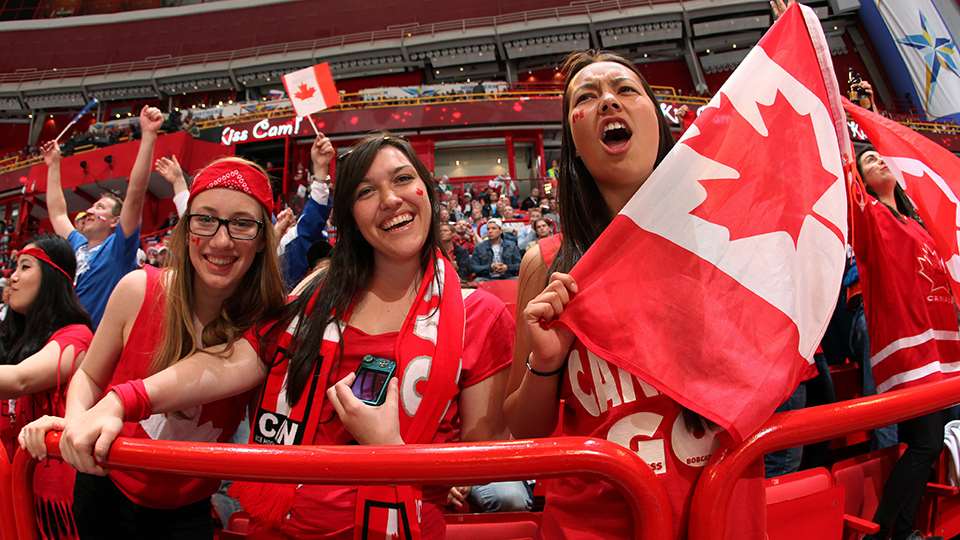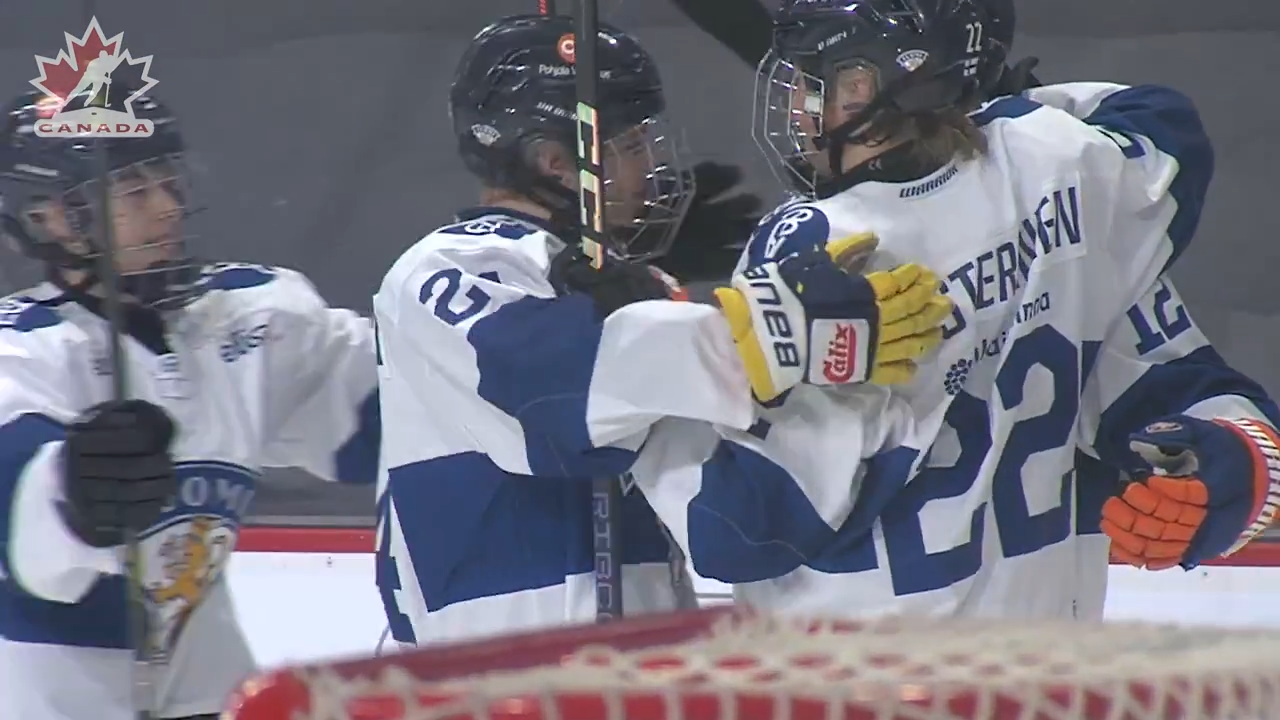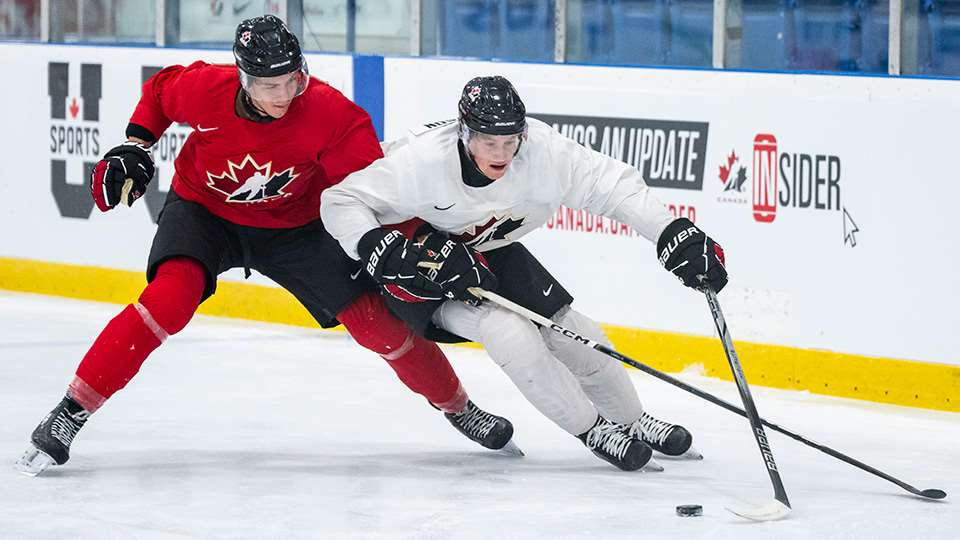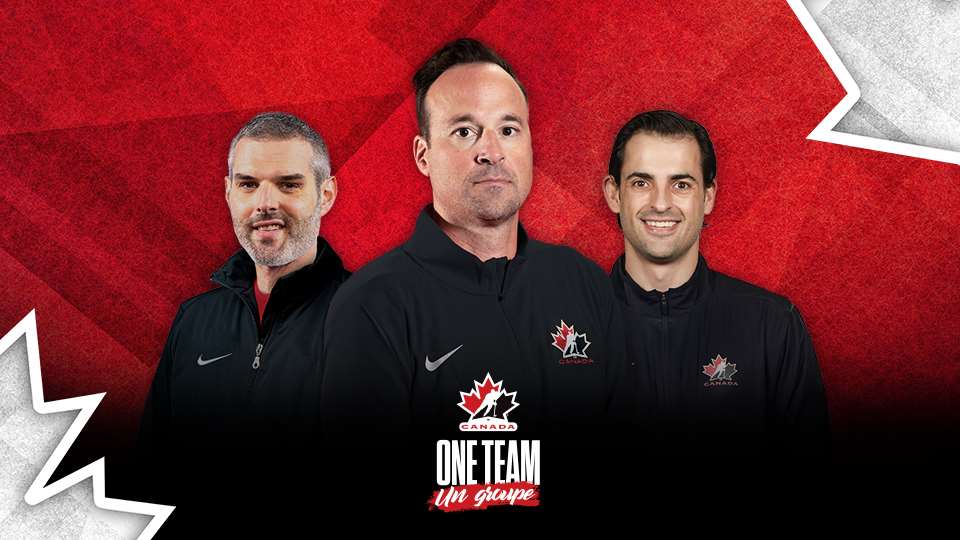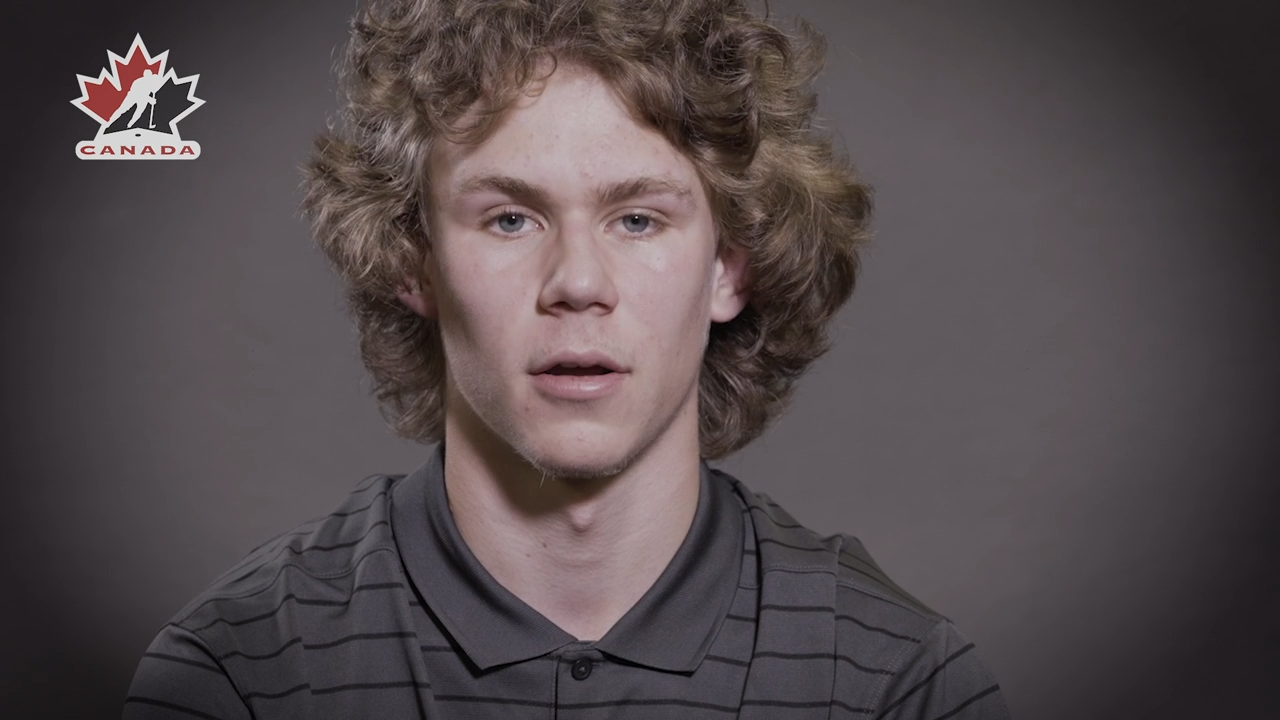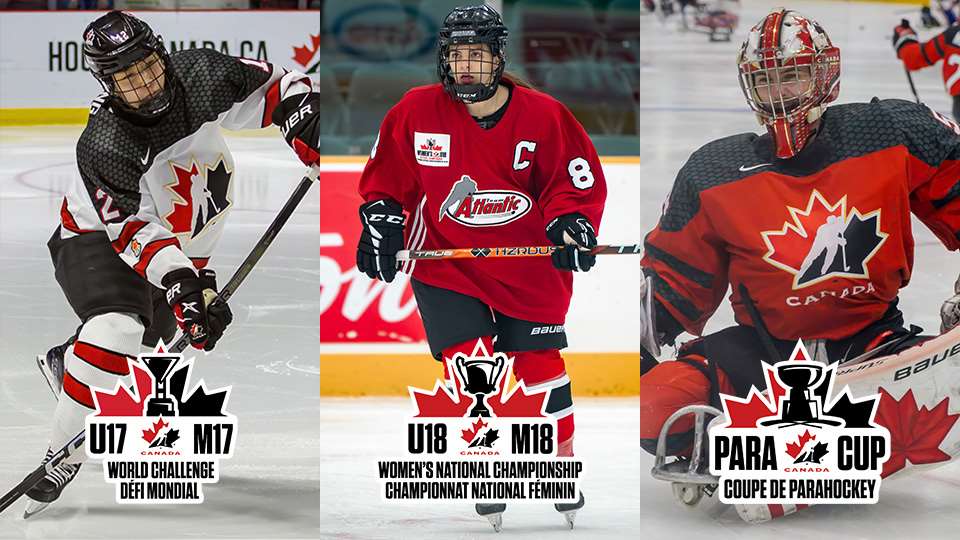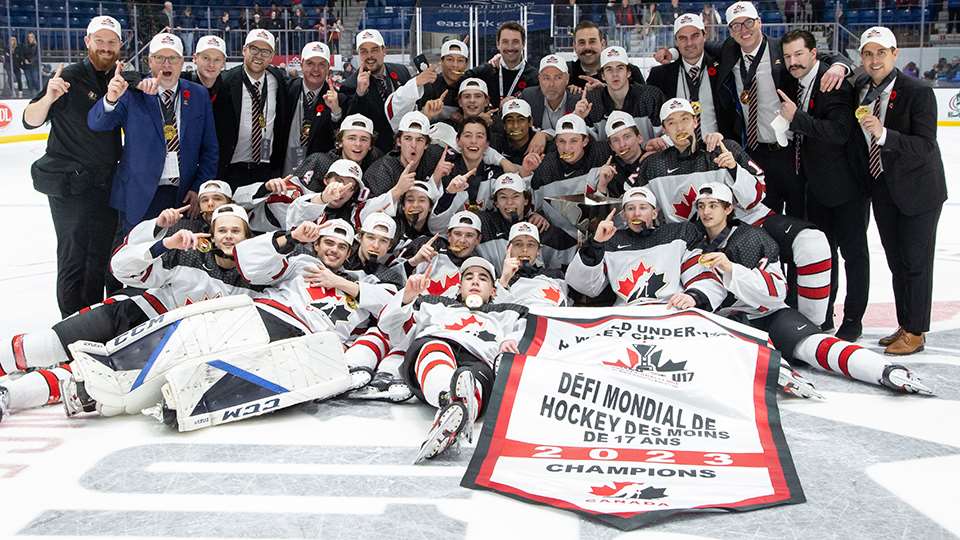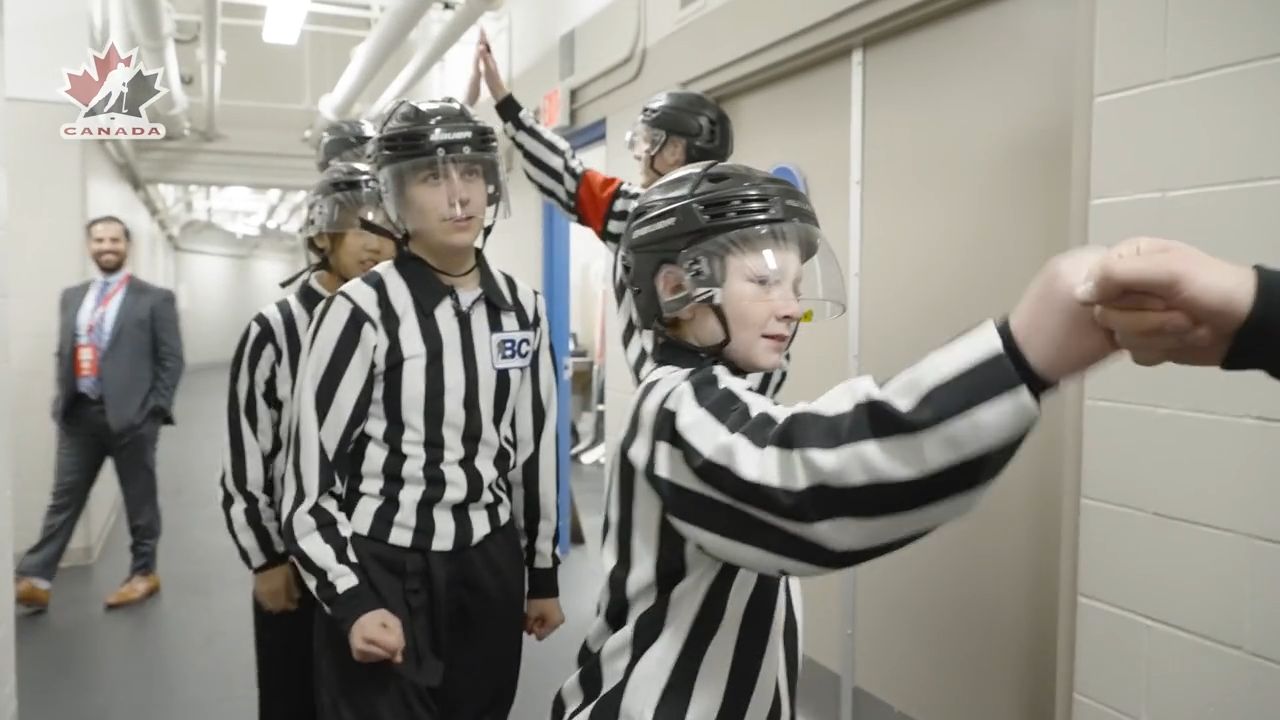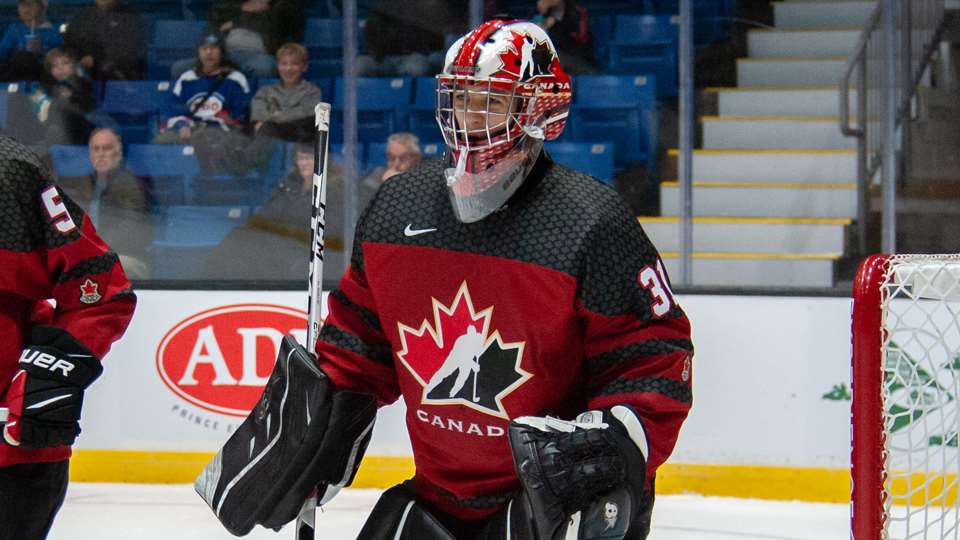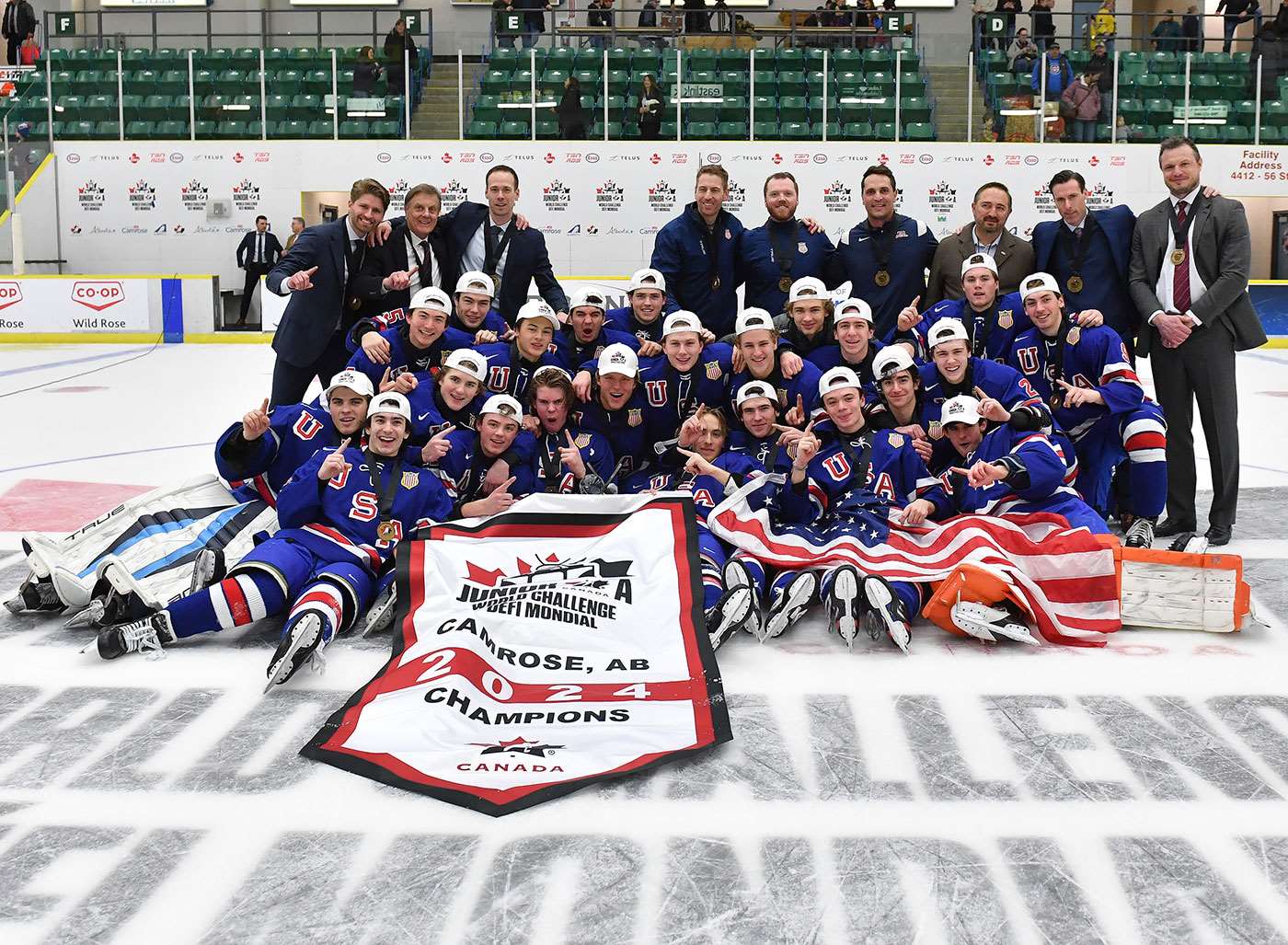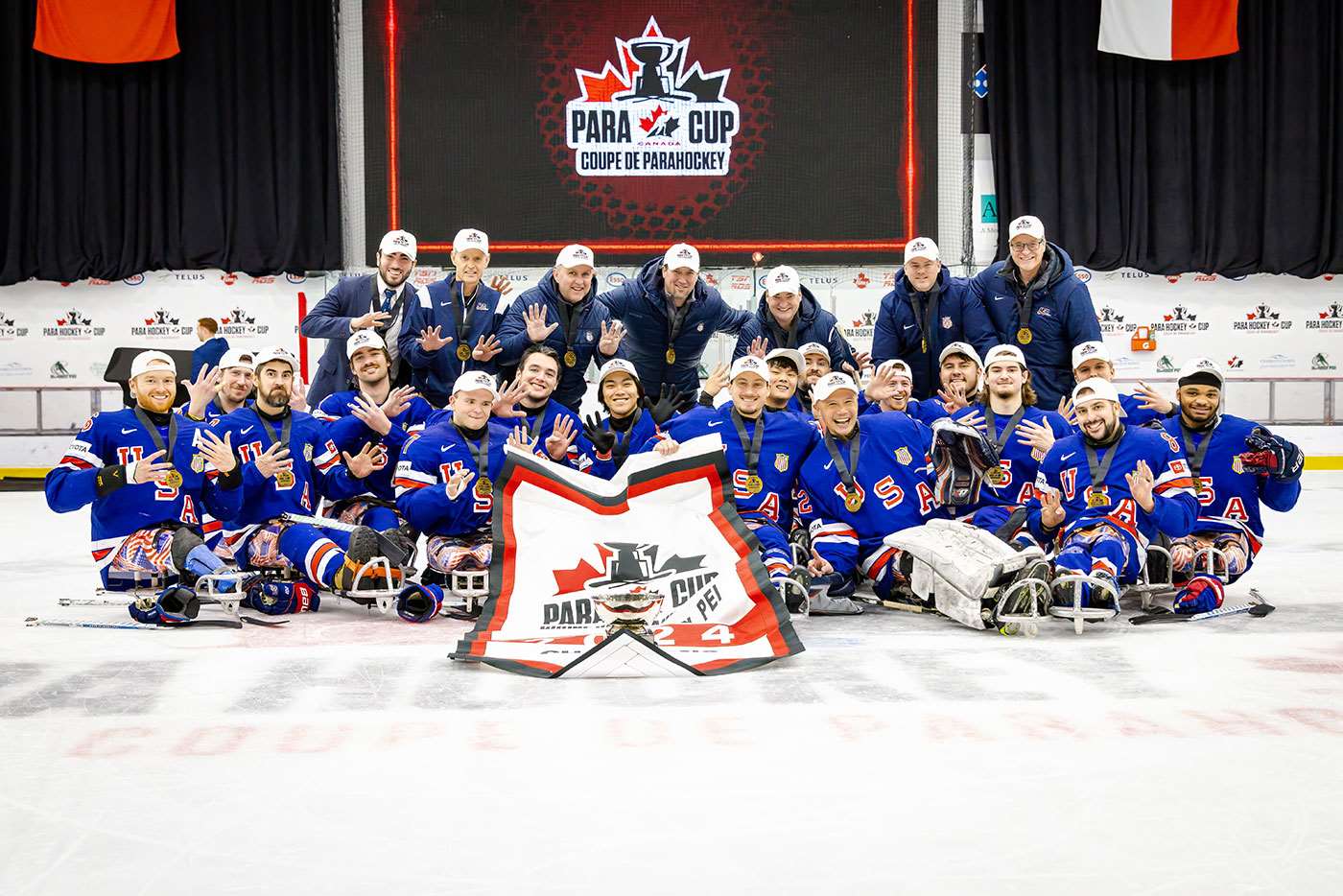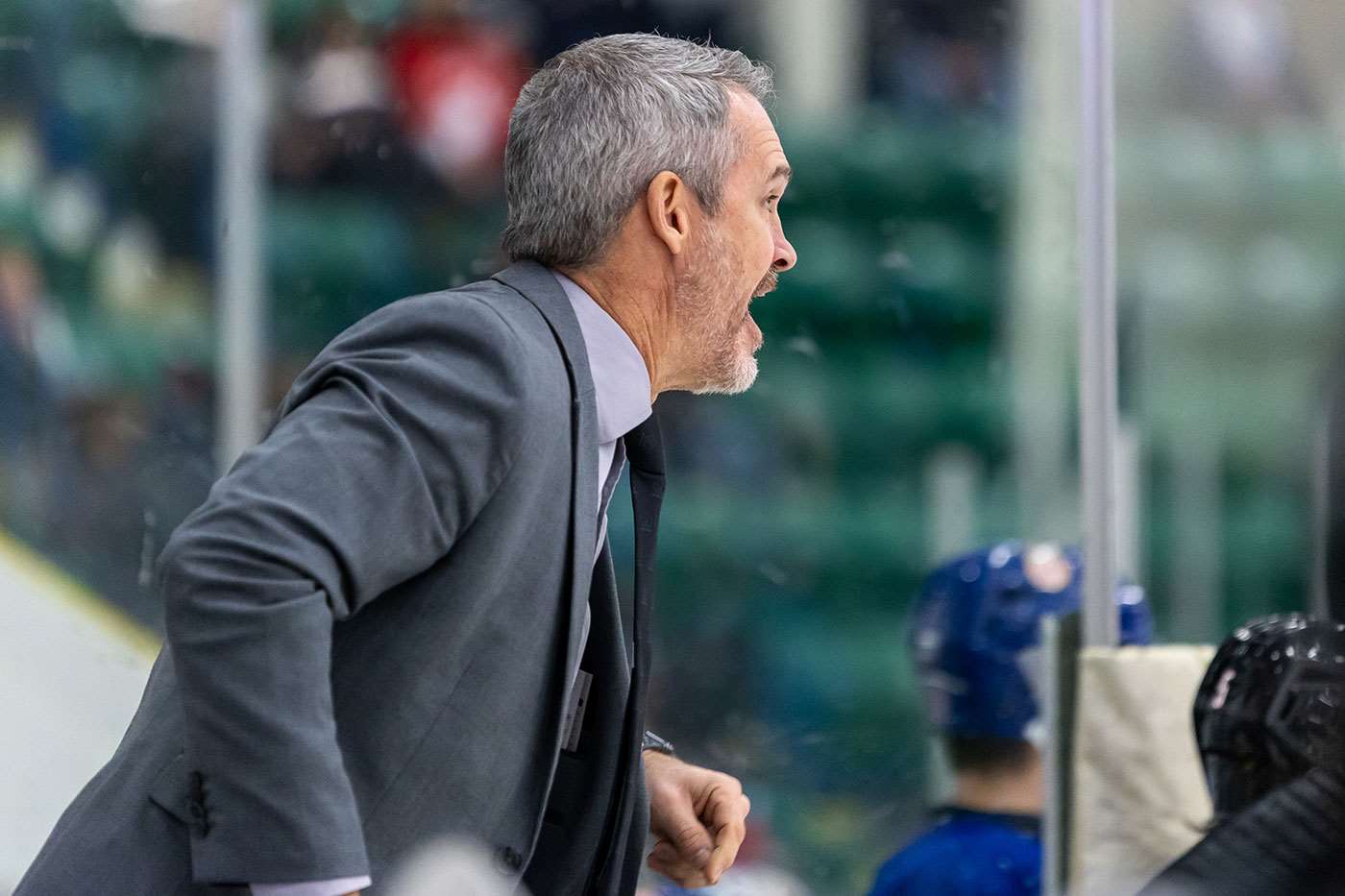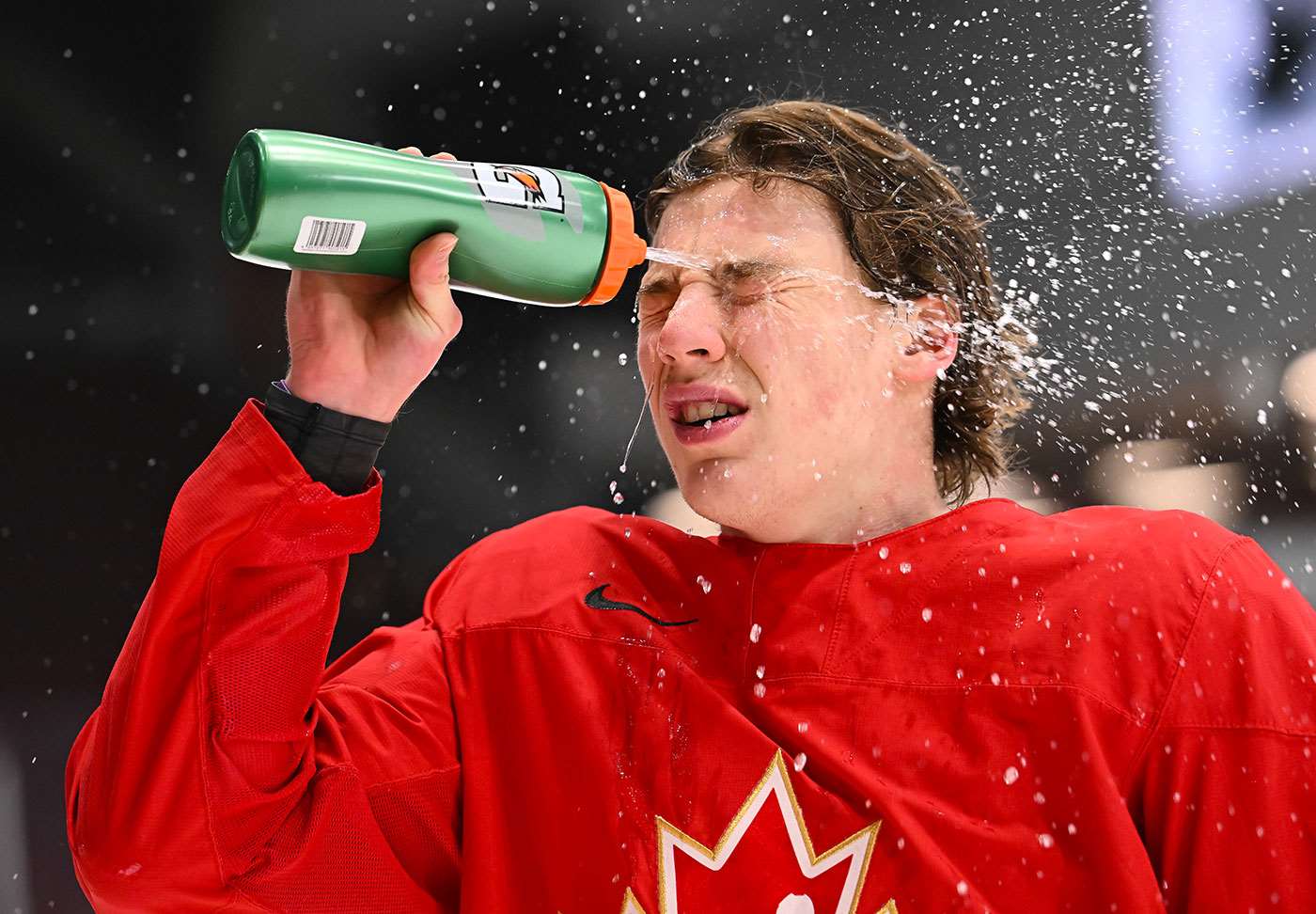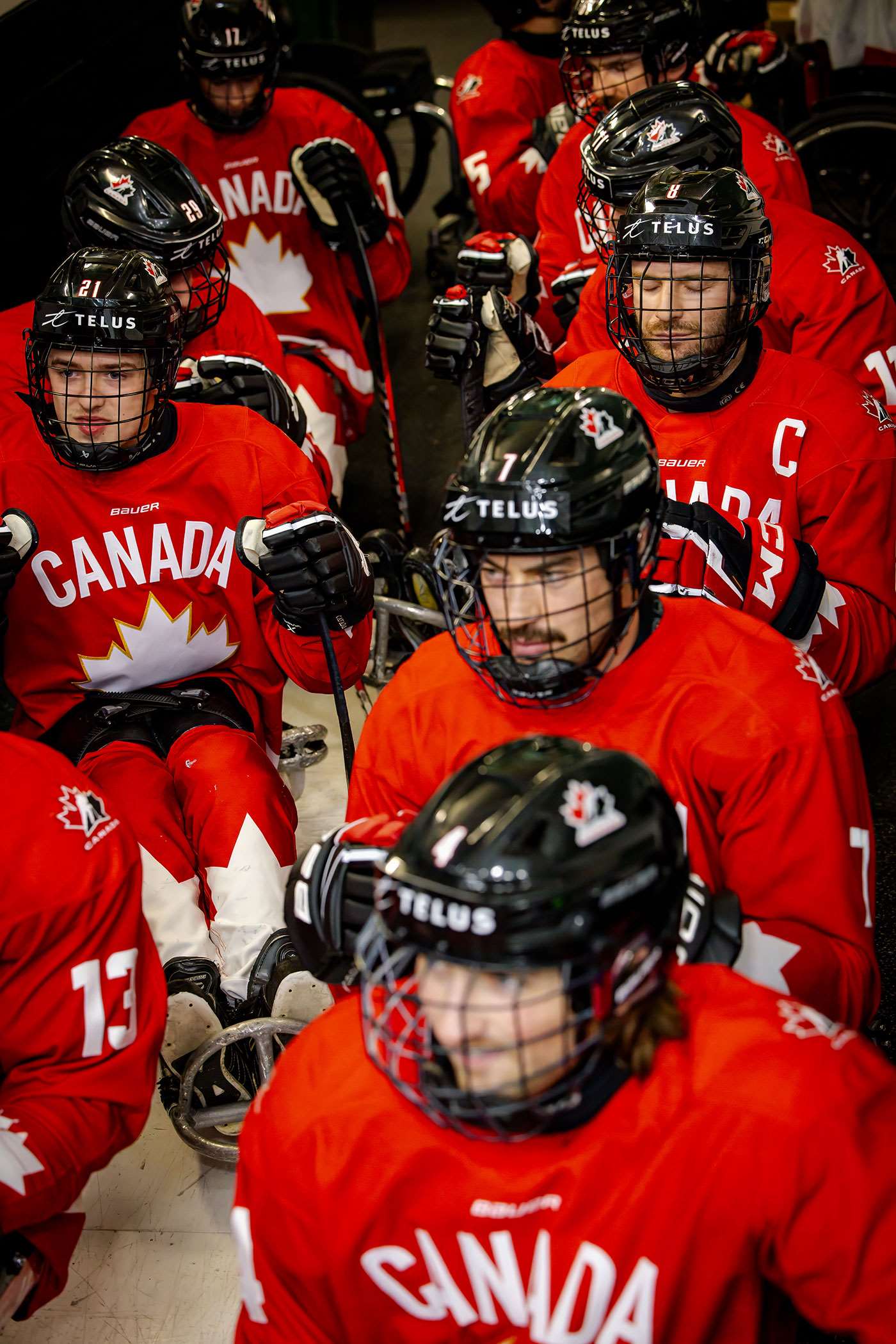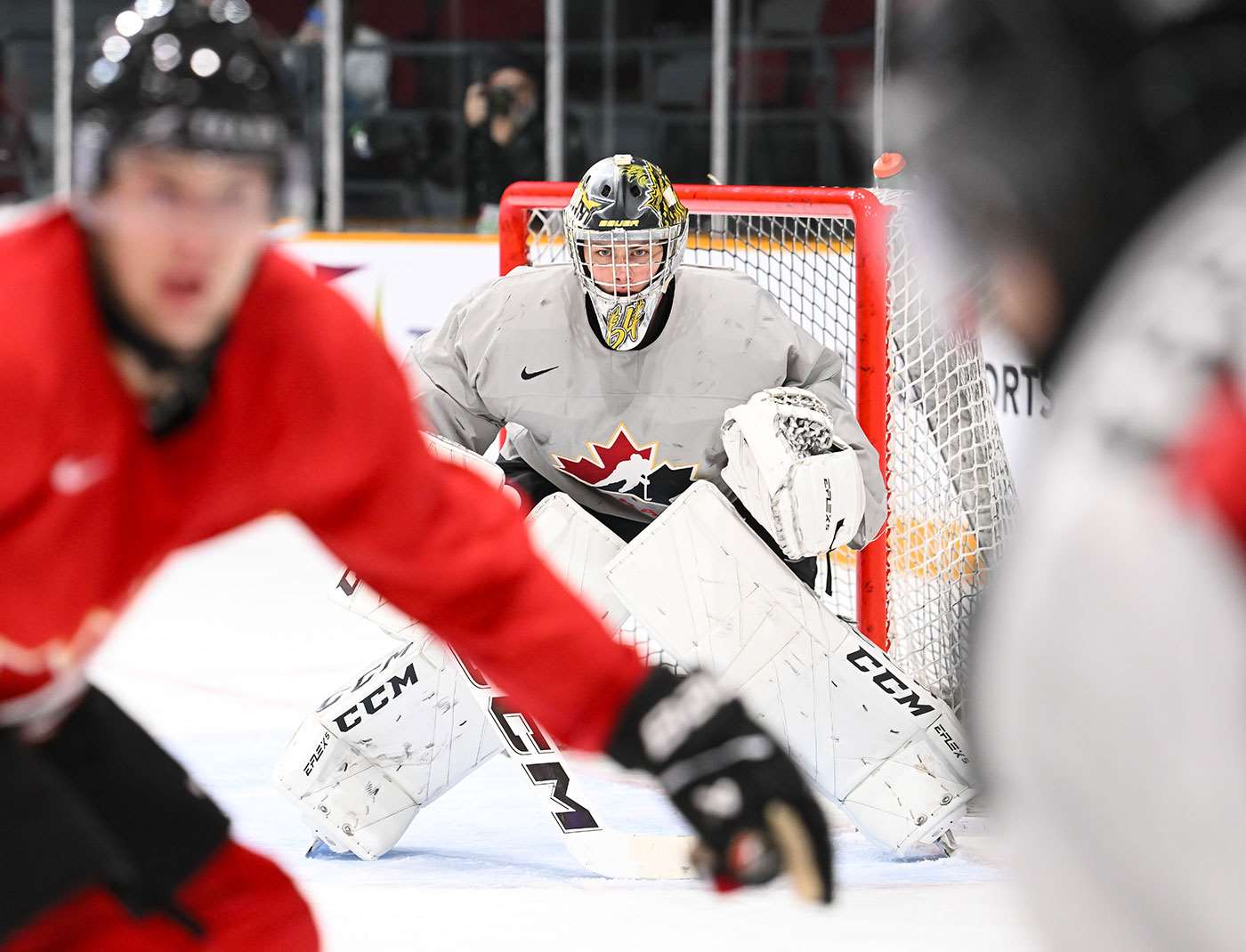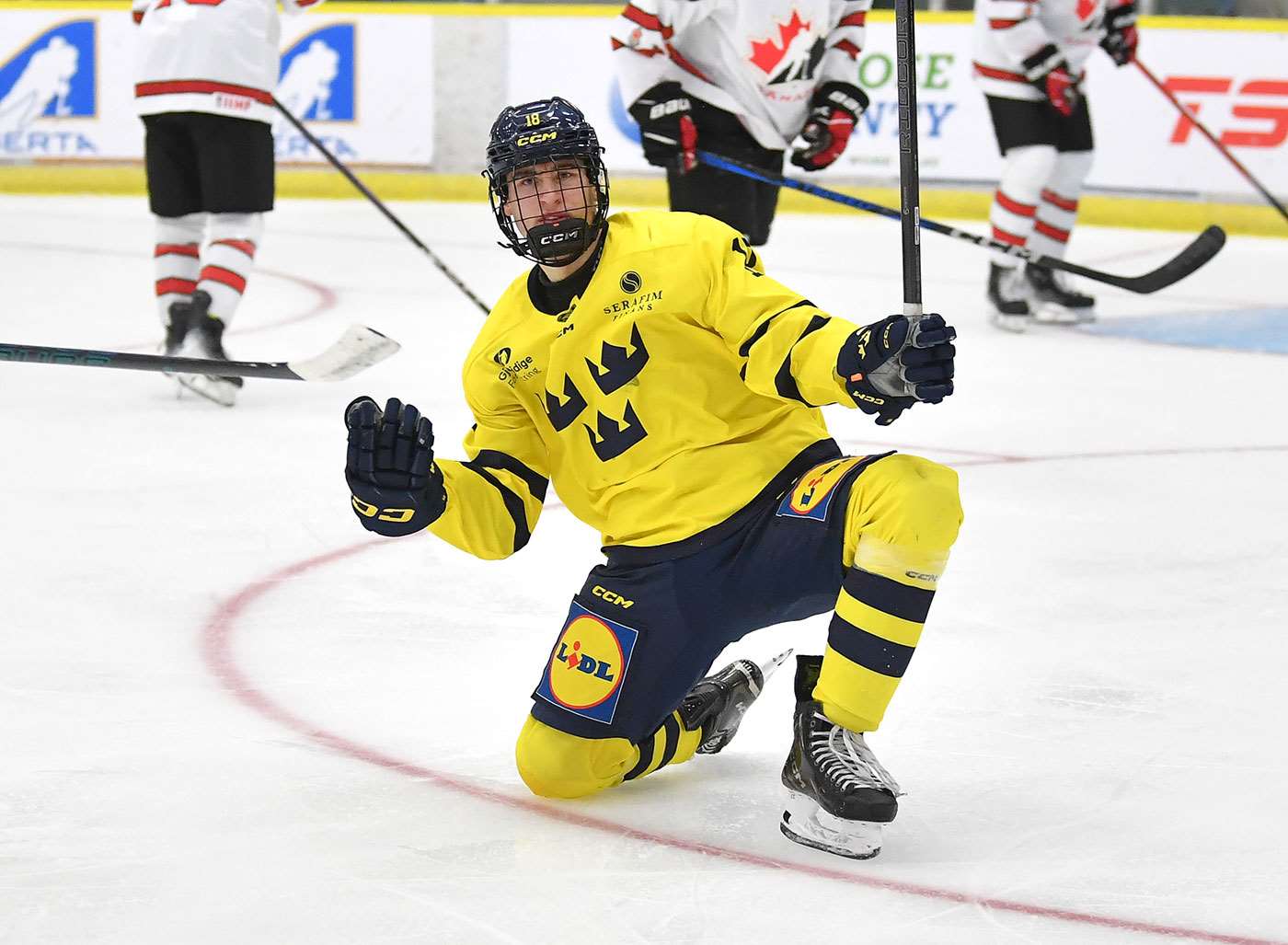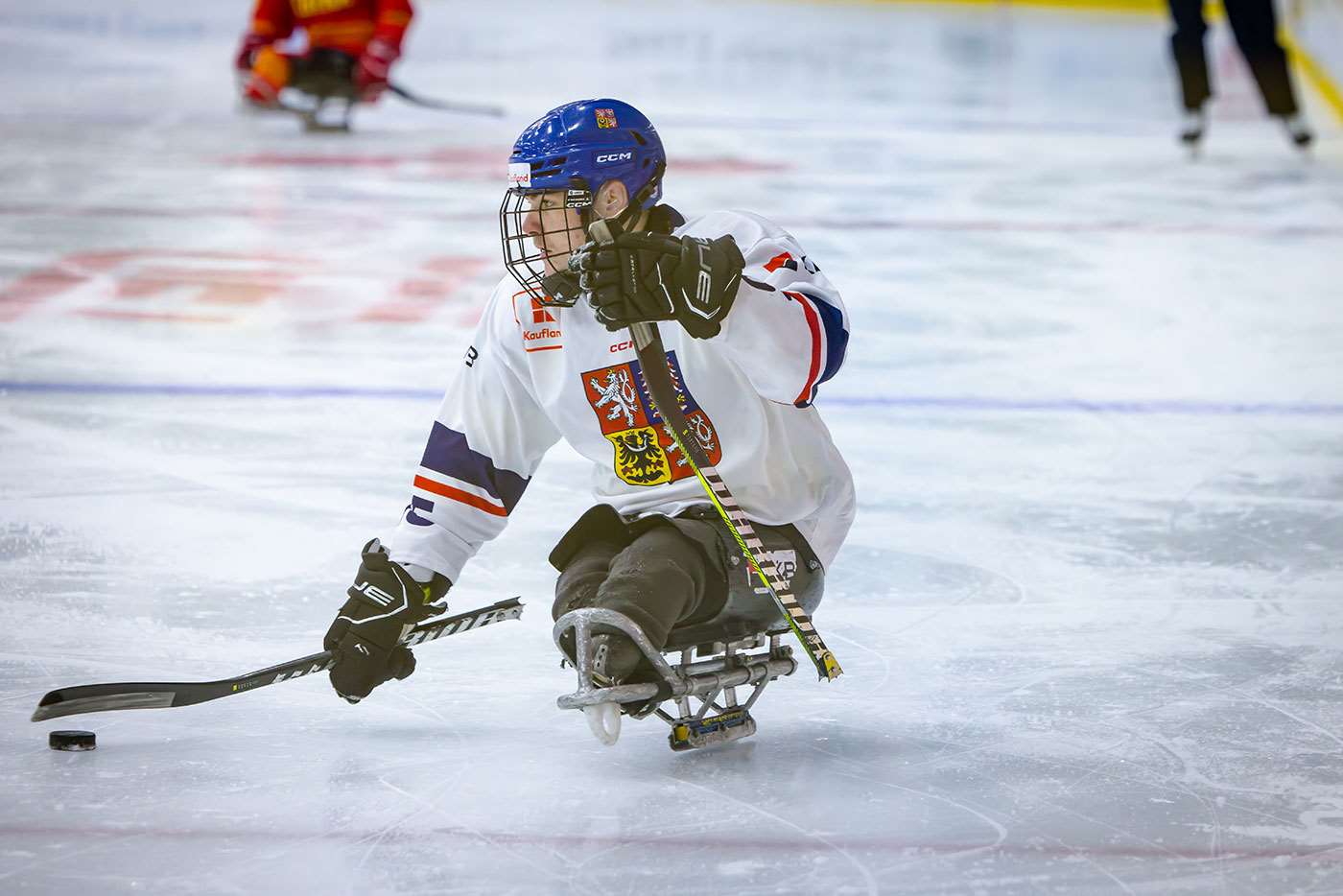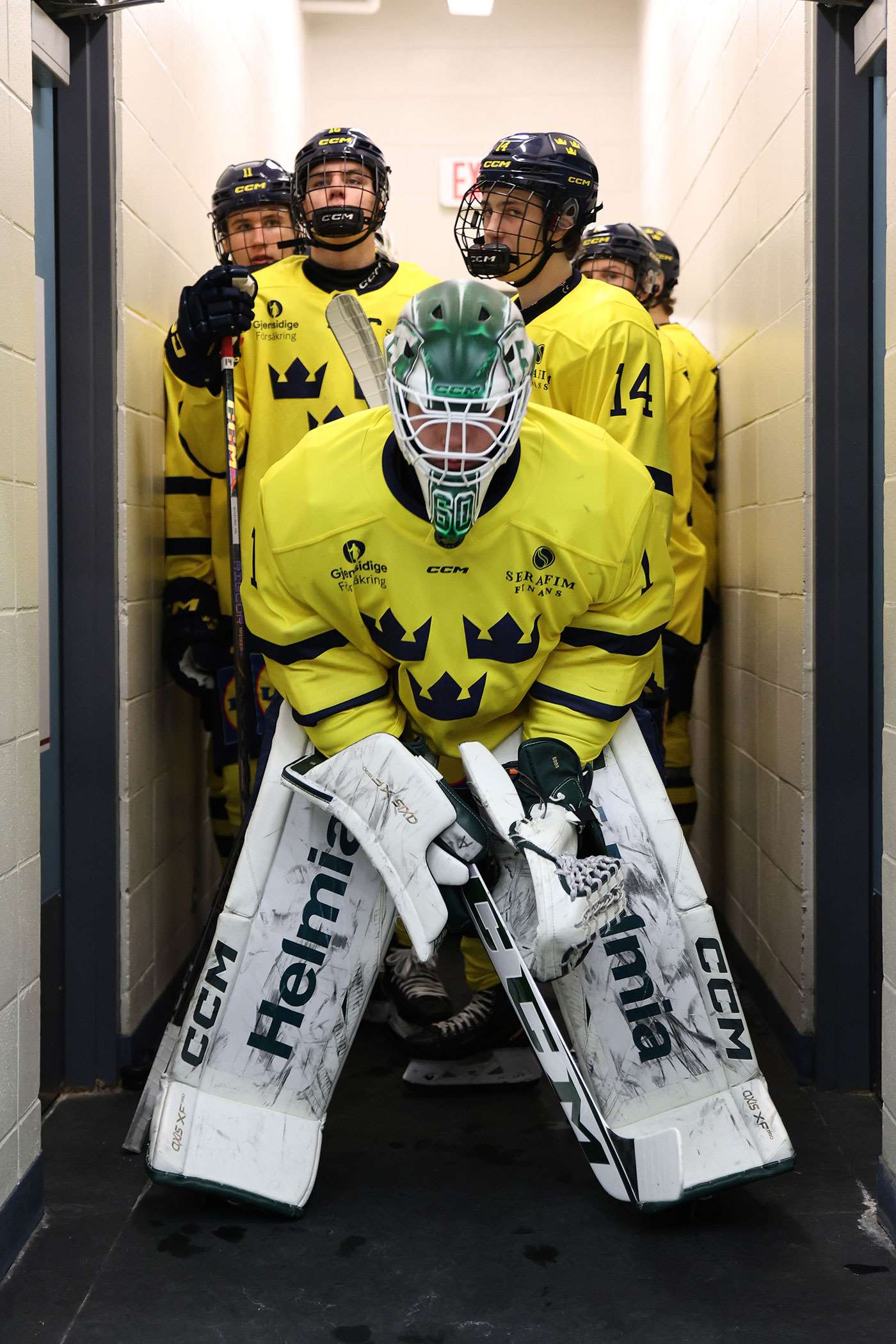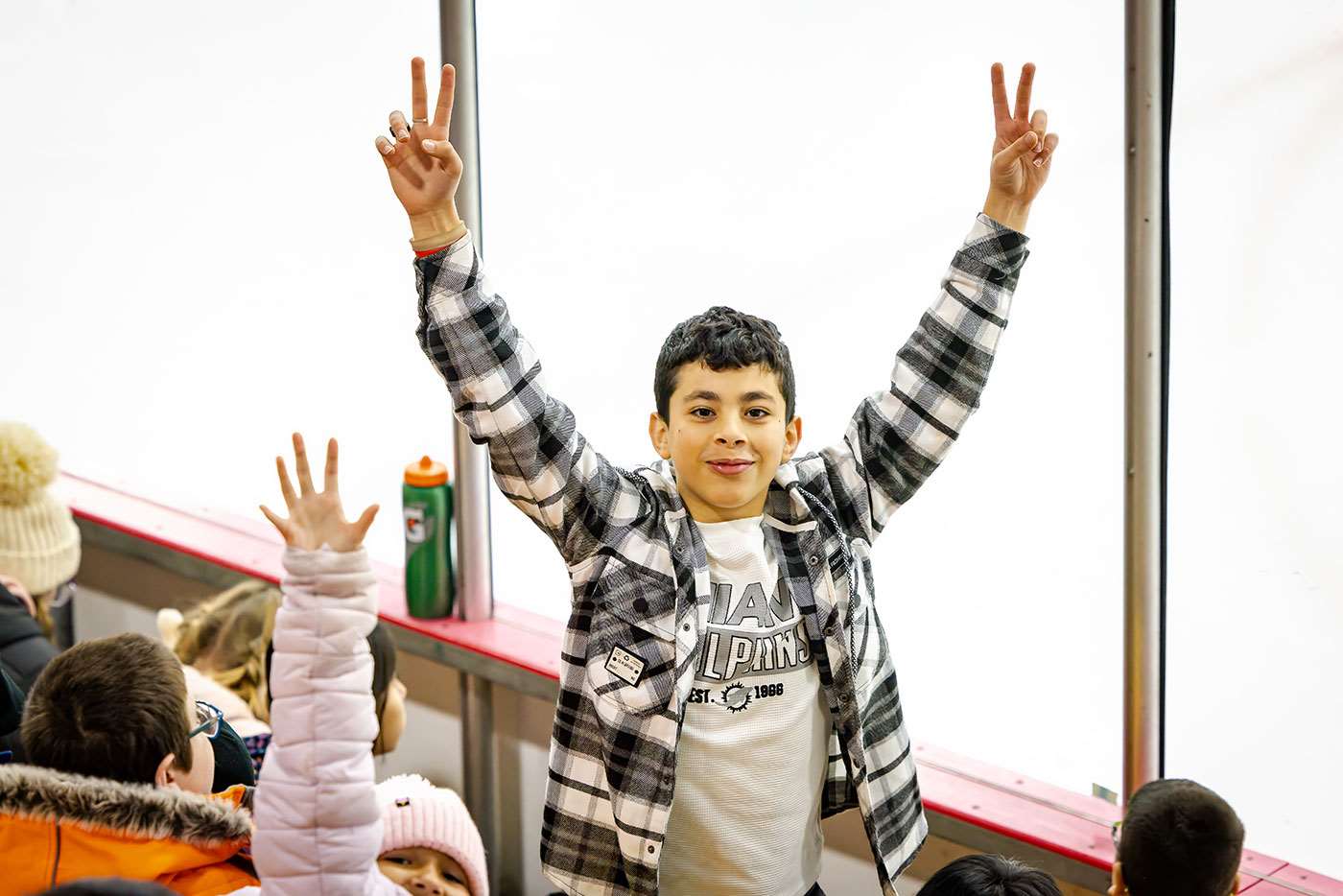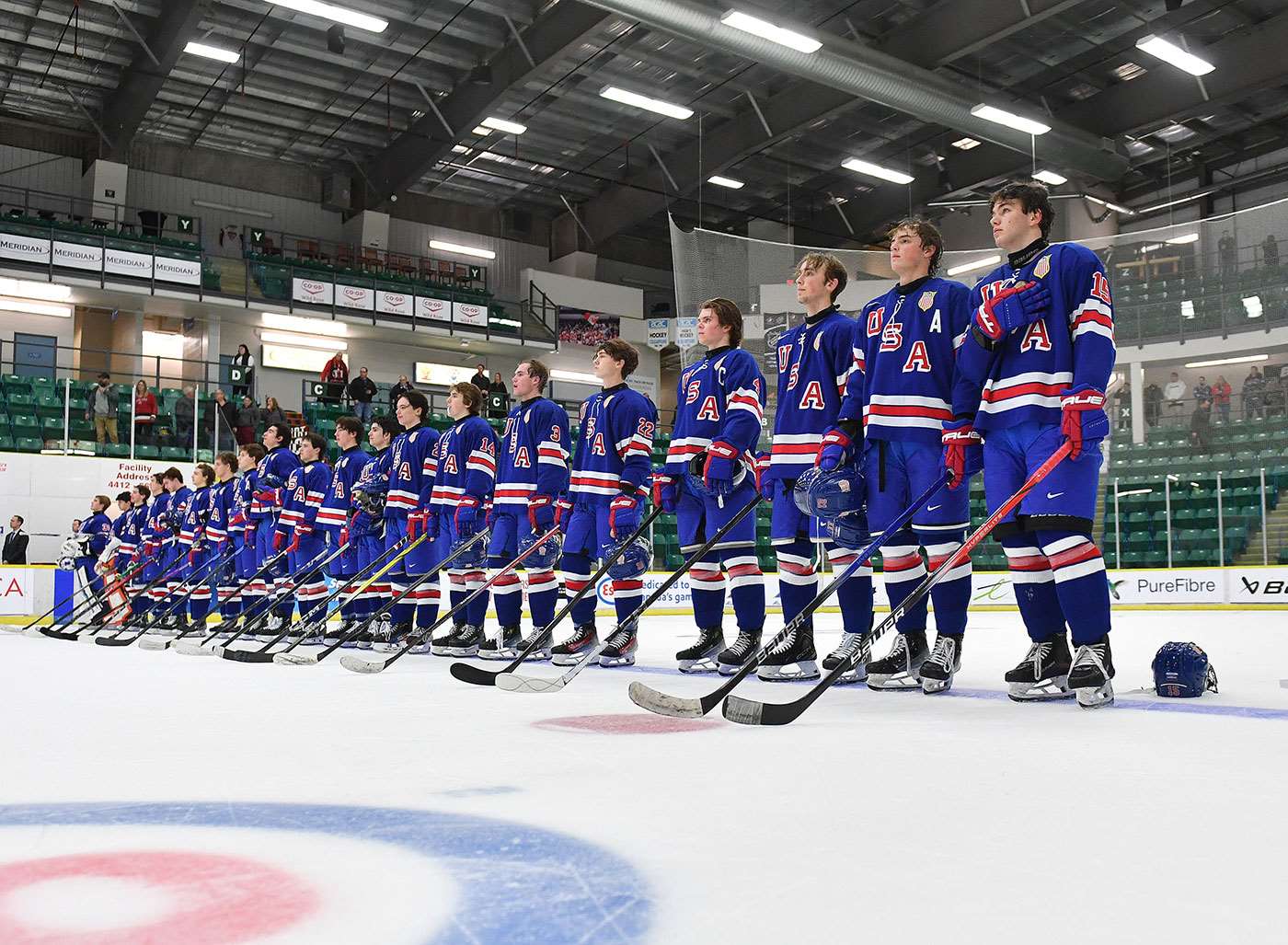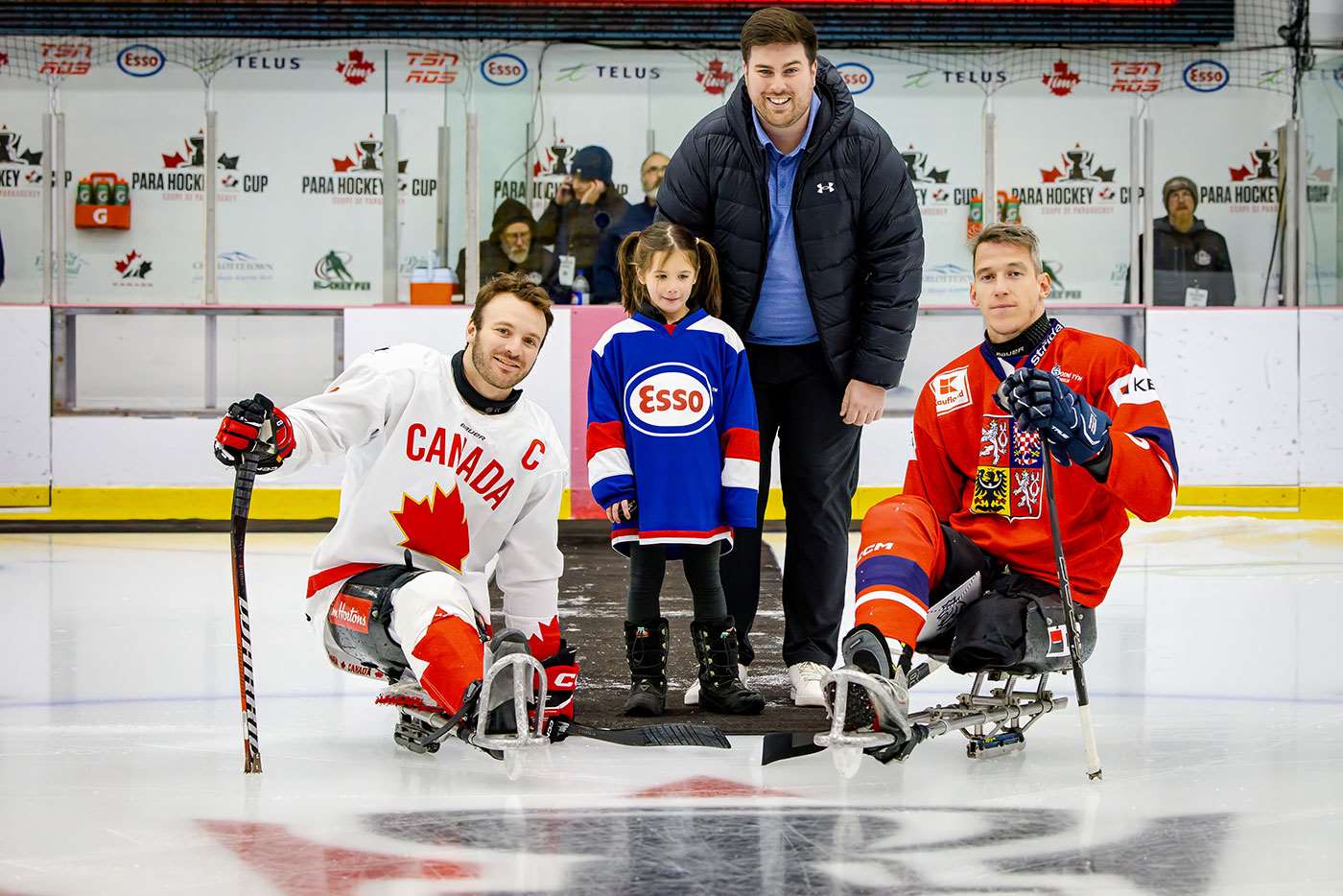William Lacelle is not your ordinary goaltender.
That’s because the 15-year-old puck-stopper from Quebec has something many
high-level athletes don’t.
“I call it my superpower,” Lacelle says.
What Lacelle is referring to is the fact he is hard of hearing — 100 per
cent deaf in his left ear and 50 per cent in his right — and it has, in many
ways, helped him become a standout goalie with the Lions du
Lac St-Louis of the Ligue de développement du hockey des M18 du Québec.
“I use my hearing disability as a superpower. I use it to my advantage,” he
says.
Lacelle, who was named the LDHM18AAAQ’s player of the year last season, and
his superpower will be on display at the World Under-17 Hockey Challenge in
Charlottetown and Summerside, P.E.I., as a member of Team Canada Red.
“It's just an honour to be representing Canada … and representing Quebec,”
says Lacelle, who won’t turn 16 until Boxing Day and is the youngest of the
44 players wearing the Maple Leaf, “It’s an amazing feeling.”
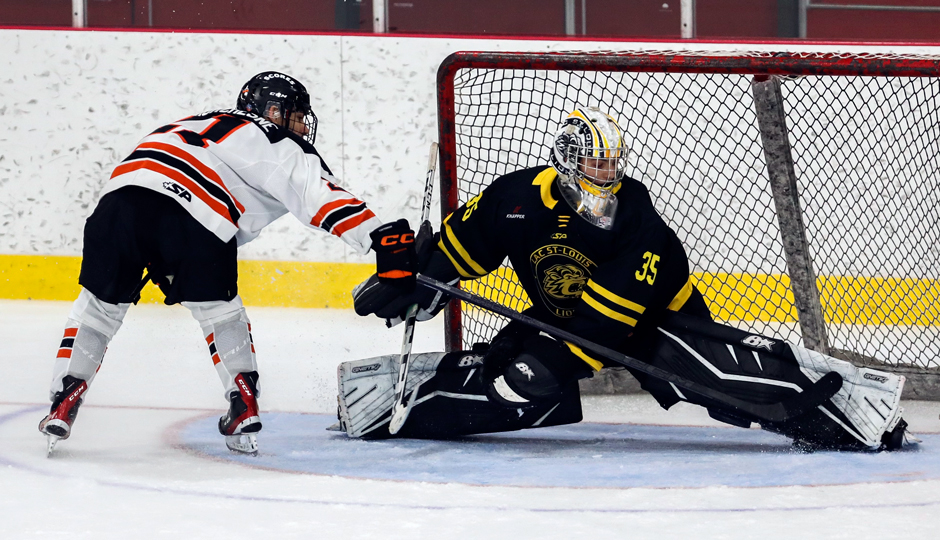
Born in Baie d'Urfé, Quebec, a community about 30 minutes west of Montreal,
Lacelle has what is known as
sensorineural hearing loss in both his ears — resulting in difficulties
hearing, particularly in louder environments.
“It’s something I’ve had my whole life,” he says. “It is a big part of who I
am as a person.”
Lacelle began figure skating at an early age but switched to hockey when he
was about seven years old. He first started out playing defence but that
didn’t last long.
“I was always blocking shots. My dad would say ‘Oh shoot, I think we have a
goalie here,’ and that’s how I got into goaltending,” recalls Lacelle.
“He was absolutely passionate about being a goalie,” says his father,
Stephen Lacelle. “I bought him some little street pads and I would practice
shooting on him outside and he absolutely ate it up. He just loved it.”
A year later he was between the pipes full-time and it wasn’t long
afterwards that it became clear to Stephen that his son was able to see the
game differently from those around him.
“I would take him to hockey games and he would see things on the ice that I
couldn't believe that young kid could pick up,” says Stephen. “After games
as a very young goalie, he would tell me things about the particular number
of a player like ‘Daddy, that is the kid with the green tape on the top hand
stick.’ He would see things that like the other kids wouldn't see. It was
just innate.”
“Don’t use it as a disability, use it as a superpower”
Lacelle is coming off arguably his best season ever, finishing with a record
of 18-4 and posting a league-leading 1.55 goals-against average, helping the
Lions reach the LDHM18AAAQ semifinals, where they fell to the eventual
national champions from Séminaire Saint-François. He also backstopped Quebec
to a bronze medal at the Canada Winter Games in February and was the first
goaltender off the board at the 2023 QMJHL Draft, going 10th overall to the
Rimouski Oceanic. Oh, and if that wasn’t enough, he also received a $2,700
bursary this spring from the Montreal Canadiens for his athletic and
academic success.
"It's astonishing it's how quickly it's come together for him,” says
Stephen, “For a 15-year-old, it's really inspiring, and it has all just
happened so fast. If you would have told me this would happen to him seven
or eight years ago, I wouldn't have believed you."
But it hasn’t always been this easy for Lacelle, whose success on and off
the ice is very much the result of hard work and getting those around him to
understand his situation.
“Everyone understands my problem now and they have grown to accept it. But
at first, they were annoyed because I would always say ‘what?’ because I
would have to hear what they say twice. So, it was challenging not only for
other people, but for myself,” he says.
“It has been challenging for him for sure, especially in school but there
are a bunch of things we have done for him,” adds Stephen. “But he has been
very well supported by a good network of professionals at a rehabilitation
centre here in Montreal and his teachers and schools, both at the primary
and secondary school level, have been fabulous.”
As Lacelle has grown older, he’s taken what many would consider a
disadvantage and used it to his advantage.
“I will make a save and after the whistle guys on the other team might come
by and say something mean to me, but I don’t hear it. I am just focused on
the game and trying to win. It’s the little things, finding strategies.”
Among the strategies Lacelle relies on is increased communication with his
teammates and coaches, whether it is verbally or through hand signals.
“I always double check with my coaches to make sure I hear stuff right.
Let’s say he explains a game plan. I will go see him after just to make sure
I heard exactly what he said or what is happening,” he says. “So, I really
just make sure I double check with my teammates.”
“The coaches at all levels have been fantastic,” adds Stephen. “We would
always tell his coaches at the start of the season that William was hard of
hearing just so that they were sensitized to the situation. We didn't ask
for any special treatment or anything. We just wanted them to know.”
Another strategy is lip reading, which is something that Lacelle can do in
both English and French.
“I pretty much grew up bilingual and because of that I have been able to
adapt to both French and English teams when I need to,” he says. “So, I read
a lot of lips and I think that is an advantage.”
Still there are some challenges that are unique to Lacelle.
“It is a bit challenging when the rink is very loud, when there are a lot of
noises and different sounds going on and that can affect my hearing because
I won’t be able to hear some of teammates calls on the ice. But, that’s
where lipreading comes in.”
When asked what his advice is to others young athletes who are hard of
hearing, Lacelle says the biggest thing is to block out the noise.
“Ignore what people are saying negatively about you and keep moving
forward,” he says. “I have had to face … people making fun of me but the
best thing you can do is ignore it. Go on the ice and show what you can do.
Don’t use it as a disability, use it as a superpower.”

